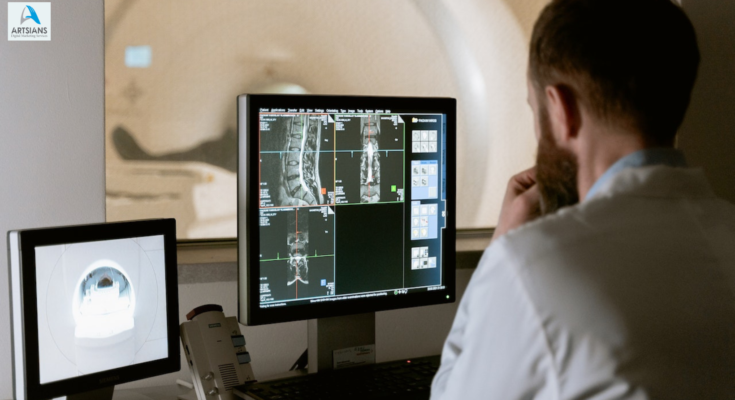The healthcare industry has seen tremendous changes in the past few decades, and one of the most notable innovations is the integration of Artificial Intelligence (AI). Chatbots have become an increasingly popular AI tool for improving patient care and health outcomes. In recent years, ChatGPT, a language model developed by OpenAI, has been making waves in the healthcare industry. In this article, we will explore how ChatGPT is revolutionizing the healthcare industry and its impact on patient care.
Introduction to ChatGPT
ChatGPT is a language model develop by OpenAI, designed to generate human-like responses to natural language queries. It is a neural network-based model that has trained on massive amounts of data to generate coherent and meaningful responses to a wide range of inputs. ChatGPT can be used to generate text, answer questions, and even write articles. Its ability to understand and interpret natural language has made it a valuable tool in the healthcare industry.
ChatGPT and Patient Care
One of the main benefits of ChatGPT in the healthcare industry is its ability to provide patients with quick and accurate answers to their questions. Patients can interact with ChatGPT through messaging platforms or voice assistants and get answers to their health-related questions without having to wait for a doctor’s appointment. This saves time and reduces the burden on healthcare providers.
ChatGPT can also help patients manage their chronic conditions. For instance, ChatGPT can remind patients to take their medication, track their symptoms, and provide personalized advice based on their health data. This can improve patient outcomes and reduce healthcare costs.
ChatGPT and Healthcare Providers
ChatGPT can also assist healthcare providers in their day-to-day operations. It can help doctors and nurses to quickly find information about a patient’s medical history, lab results, and treatment plans. ChatGPT can also assist in diagnosing illnesses by providing real-time feedback on symptoms, medical history, and other factors.
ChatGPT can also help reduce the workload of healthcare providers. It can handle routine tasks such as appointment scheduling, prescription refills, and lab test results. This frees up more time for healthcare providers to focus on complex patient care tasks and improves their productivity.
ChatGPT and Telemedicine
Telemedicine has become an increasingly popular way for patients to receive healthcare services remotely. ChatGPT can enhance the telemedicine experience by providing patients with real-time medical advice, answering their questions, and assisting healthcare providers in diagnosing and treating patients remotely. This improve patient access to healthcare services, particularly in remote areas where healthcare services limited.
ChatGPT and Health Data
The healthcare industry generates massive amounts of data on a daily basis. ChatGPT can help healthcare providers to analyze this data more effectively by providing real-time insights into patient outcomes, treatment plans, and healthcare trends. This can help healthcare providers to make more informed decisions about patient care, reduce costs, and improve health outcomes.
ChatGPT and Ethical Concerns
While ChatGPT has many potential benefits in the healthcare industry, it also raises ethical concerns. One concern is the potential for bias in the data use to train the model, which could lead to inaccurate responses to queries. Another concern is the privacy of patient data. Healthcare providers must ensure that patient data is protected and that ChatGPT is use ethically.
Conclusion
ChatGPT is revolutionizing the healthcare industry by providing patients with quick and accurate answers to their health-related questions, assisting healthcare providers in diagnosing and treating patients, and analyzing health data more effectively. However, healthcare providers must ensure that ChatGPT is used ethically and that patient data is protected. With proper use and regulation, ChatGPT can continue to improve patient care and With proper use and regulation, ChatGPT can continue to improve patient care and outcomes in the healthcare industry.
FAQs
- What is ChatGPT?
- ChatGPT is a language model developed by OpenAI that generate human-like responses to natural language queries.
- How is ChatGPT revolutionizing the healthcare industry?
- ChatGPT is revolutionizing the healthcare industry by providing patients with quick and accurate answers to their health-related questions, assisting healthcare providers in diagnosing and treating patients, and analyzing health data more effectively.
- Can ChatGPT replace healthcare providers?
- No, ChatGPT cannot replace healthcare providers. It can assist them in their day-to-day operations and provide patients with real-time medical advice, but it cannot replace the human element of healthcare.
- What are the ethical concerns surrounding ChatGPT?
- The ethical concerns surrounding ChatGPT include potential bias in the data used to train the model, privacy of patient data, and ethical use of the technology.
- How can healthcare providers ensure ethical use of ChatGPT?
- Healthcare providers can ensure ethical use of ChatGPT by protecting patient data, using the technology responsibly, and addressing any potential biases in the data used to train the model.



